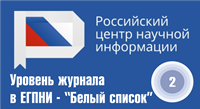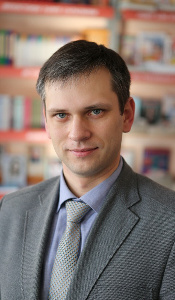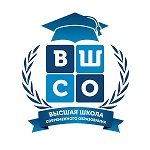РАЗВИТИЕ ПРОФЕССИОНАЛИЗМА ПЕДАГОГА СРЕДСТВАМИ РЕФЛЕКСИВНОЙ ПРАКТИКИ
Аннотация
Обоснование. Значимость непрерывного совершенствования профессиональных компетенций, вызванная научно-техническим развитием и социально-экономическими изменениями, происходящими в обществе, существенно возросла во всех сферах жизнедеятельности человека. Среди специалистов, способных к личностному и профессиональному росту, критическому мышлению, интеллектуальной гибкости, а также творческому принятию решений, отдельное место занимают те, кто способен к рефлексии, соответственно, на первый план выходит необходимость развития навыков профессиональной рефлексии. В статье рассматривается такой способ развития профессионализма педагога, как рефлексивная практика. Изучение вопросов развития профессиональной рефлексии представляется особо актуальным, так как сформированные рефлексивные навыки и умения обусловливают эффективность профессиональной деятельности педагога и успешность процесса обучения. Вопросы развития профессионализма педагога средствами рефлективной практики являются перспективной темой изысканий в области педагогики и психологии.
Цель – рассмотреть рефлексивную практику как способ развития профессиональной рефлексии педагога.
Материалы и методы. В ходе исследования используются научные методы теоретического анализа, систематизации информации и обобщения. Применяется общий литературный обзор, связанный с такими ключевыми понятиями исследования, как рефлексия и рефлексивная практика. Полученные данные комментируются на основе описательного метода.
Результаты. В результате исследования были сопоставлены различные модели рефлексивной практики, обозначены преимущества и условия ее эффективного применения, описаны способы организации рефлексивной практики и приведены практические примеры инструментов для ее применения. Сделан вывод о необходимости применения рефлексивной практики как эффективного способа развития профессионализма педагога и повышения успешности образовательного процесса.
EDN: GWVBON
Скачивания
Литература
Список литературы
Выготский Л.С. Психология развития как феномен культуры / Под. ред. М.Г. Ярошевского. М.: Воронеж, 1996. 513 с.
Зарецкий В.К. Становление и сущность рефлексивно-деятельностного подхода в оказании консультативной психологической помощи // Консультативная психология и психотерапия. 2013. № 2. С. 8-37.
Карпов А.В. Рефлексивность как психическое свойство и методика ее диагностики // Психологический журнал. 2003. Т. 24. № 5. С. 45-58.
Кунаковская Л.А., Кривотулова Е.В., Арпентьева М.Р. Рефлексивное обучение в преподавании психолого-педагогических дисциплин // Профессиональное образование в России и за рубежом. 2022. № 3(47). С. 131-139. https://doi.org/10.54509/22203036_2022_3_131
Метаева В. А. Профессиональная рефлексия: сущностное и формальное // Новые педагогические исследования. 2006. № 4. С. 105-108.
Полонский В.М. Словарь по образованию и педагогике. Москва: Высш. шк., 2004. 511 с.
Фадеева Т.Ю., Косарева С.А. Соотношение самоорганизации учебной деятельности и рефлексивности студенческой молодежи в зависимости от пола // Известия Саратовского университета. Новая серия. Серия: Акмеология образования. Психология развития. 2022. Т. 11. Вып. 4 (44). С. 306-315. https://doi.org/10.18500/2304-9790-2022-11-4-306-315
Федоренко О. А. Критическая рефлексия как способ повышения качества профессионального педагогического развития // Инновации в профессиональном и профессионально-педагогическом образовании: материалы 21-й Международной научно-практической конференции, 25-26 мая 2016 г., г. Екатеринбург / Рос. гос. проф.-пед. ун-т. Екатеринбург, 2016. С. 298-301.
Шадриков В.Д. Роль рефлексии и рефлексивности в развитии способности учащихся // Психология. Журнал Высшей школы экономики. 2012. Т. 9. № 4. С. 133-144.
Dewey J. How We Think / J. Dewey. Boston: MA D.C. Heath & Co Publishers, 1933. 242 p.
Eraut M. Schon shock: A case for reframing reflection in action // Teachers and Teaching. 1995. Vol. 1(1). P. 9-22. https://doi.org/10.1080/1354060950010102
Gibbs G. Learning by DOIng: A guide to teaching and learning methods. Further Education Unit. Oxford, Oxford Polytechnic, Oxford Centre for Staff and Learning Development, Oxford Brookes University, 2013. 134 p.
Grushka K., Hinde-McLeod J., Reynolds R. Reflecting upon reflection: theory and practice in one Australian university teacher education program // Reflective Practice. 2005. Vol. 6 (1). P. 239-246. https://doi.org/10.1080/14623940500106187
Kolb D. A. Experiential learning: experience as the source of learning and development. New Jersey, Englewood Cliffs, Prentice Hall, Pearson FT Press, 2014. 416 р.
Larrivee B. An Educator’s Guide to Teacher Reflection. Boston, Houghton Mifflin, Wadsworth, 2006. 340 p.
Schön D.A. The reflective practitioner: How professionals think in action. Aldershot: Ashgate Publishing Ltd, 1991. 374 p.
Shilova S.A., Pavlova O.V. Role of informal assessment in improving students` reflection // Russian Journal of Education and Psychology. 2022. Vol. 13, No. 5. P. 52-69. https://doi.org/10.12731/2658-4034-2022-13-5-52-69
Zeichner K.M., Liston D.P. Reflective Teaching: An Introduction. New York, Lawrence Erlbaum Associates Publishers, Routledge, 2013, 144 p. https://doi.org/10.4324/9780203771136
References
Vygotsky L.S. Psychology of development as a phenomenon of culture. By ed. M.G. Jaroshevskij. M.: Voronezh, 1996, 513 p.
Zaretskii V.K. Development and essence of reflective-activity approach in psychological and research subject. Konsul’tativnaya psikhologiya i psikhoterapiya [Counseling Psychology and Psychotherapy], 2013, vol. 21(2), pp. 8-37.
Karpov A.V. Reflexivity as a psychological property and methodology of its diagnosing. Psihologicheskij zhurnal [Psychological Journal], 2003, vol. 24, no. 5, pp. 45-58.
Kunakovskaya L.A., Krivotulova E.V., Arpentieva M.R. Reflective learning in teaching psychological and pedagogical disciplines. Professional'noe obrazovanie v Rossii i za rubezhom [Professional Education in Russia and Abroad], 2022, no. 3 (47), pp. 131-139. https://doi.org/10.54509/22203036_2022_3_131
Metaeva V. A. Professional reflexion: essential and formal. New pedagogical research, 2006, no. 4, pp. 105-108.
Polonskij V.M. Dictionary of education and pedagogy. Moscow: Vyssh. shk., 2004, 511 p.
Fadeyeva T.Yu., Kosareva S.A. The correlation between self-organization of educational activity and reflexivity of students depending on gender. Izvestija Saratovskogo universiteta. Novaja serija. Serija: Akmeologija obrazovanija. Psihologija razvitija [Izvestiya of Saratov University. Educatiobal Acmeology. Devepmental Psycjolog], 2022, vol. 11, no. 4 (44), pp. 306-315. https://doi.org/10.18500/2304-9790-2022-11-4-306-315
Fedorenko O.A. Critical reflection as a way of quality improvement of professional pedagogical development. Innovacii v professional'nom i professional'no-pedagogicheskom obrazovanii [Innovations in professional and professional pedagogical education], Ekaterinburg, 2016, pp. 298-301.
Shadrikov V.D. Role of reflection and reflexivity in the development of students’ abilities. Psihologija. Zhurnal Vysshej shkoly jekonomiki [Psychology. Journal of the Higher School of Economics], 2012, vol. 9, no. 4, pp. 133-144.
Dewey J. How We Think / J. Dewey. Boston: MA D.C. Heath & Co Publishers, 1933, 242 p.
Eraut M. Schon shock: A case for reframing reflection in action. Teachers and Teaching, 1995, vol. 1(1), pp. 9-22. https://doi.org/10.1080/1354060950010102
Gibbs G. Learning by doing: A guide to teaching and learning methods. Further Education Unit. Oxford, Oxford Polytechnic, Oxford Centre for Staff and Learning Development, Oxford Brookes University, 2013, 134 p.
Grushka K., Hinde-McLeod J., Reynolds R. Reflecting upon reflection: theory and practice in one Australian university teacher education program. Reflective Practice, 2005, vol. 6 (1), pp. 239–246. https://doi.org/10.1080/14623940500106187
Kolb D.A. Experiential learning: experience as the source of learning and development. New Jersey, Englewood Cliffs, Prentice Hall, Pearson FT Press, 2014, 416 р.
Larrivee B. An Educator’s Guide to Teacher Reflection. Boston, Houghton Mifflin, Wadsworth, 2006, 340 p.
Schön D.A. The reflective practitioner: How professionals think in action. Aldershot: Ashgate Publishing Ltd, 1991, 374 p.
Shilova S.A., Pavlova O.V. Role of informal assessment in improving students` reflection. Russian Journal of Education and Psychology, 2022, vol. 13, no. 5, pp. 52-69. https://doi.org/10.12731/2658-4034-2022-13-5-52-69
Zeichner K. M., Liston D. P. Reflective Teaching: An Introduction. New York, Lawrence Erlbaum Associates Publishers, Routledge, 2013, 144 p. https://doi.org/10.4324/9780203771136
Просмотров аннотации: 195
Copyright (c) 2024 Maria A. Isaikina, Svetlana A. Shilova

Это произведение доступно по лицензии Creative Commons «Attribution-NonCommercial-NoDerivatives» («Атрибуция — Некоммерческое использование — Без производных произведений») 4.0 Всемирная.






































